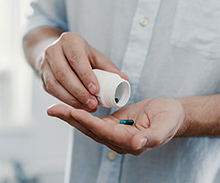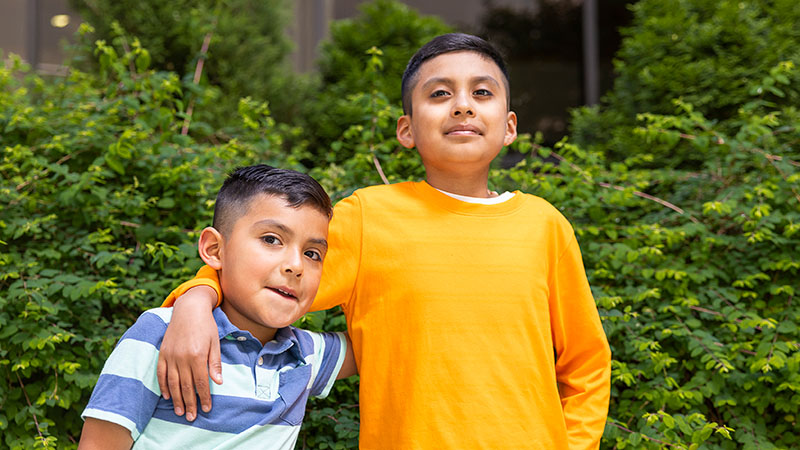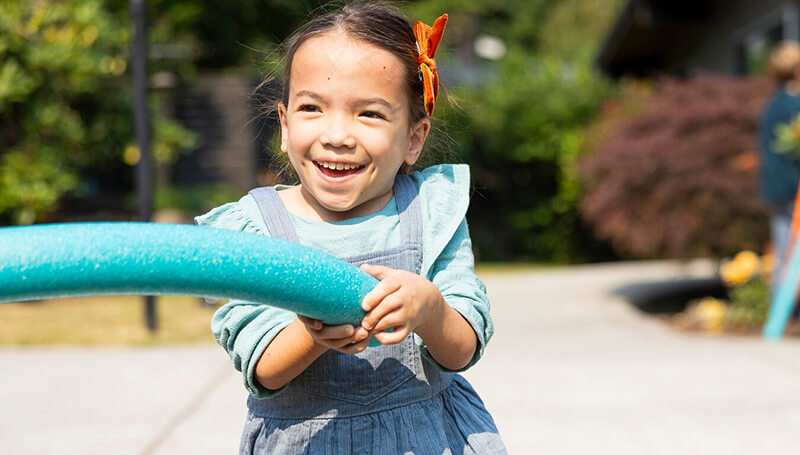Safe Medicine Storage and Disposal to Prevent Misuse
You can download this page as a PDF (English, Russian, Spanish).

Medicines can do a lot of good, but they can cause harm if they get in the wrong hands or are used the wrong way. This is true for both prescription and over-the-counter medicines. Safe storage and disposal of medicine in the home is one way to help keep children and teens safe from accidental poisoning, overdose and medication misuse.
What is medicine misuse?
Medicine misuse includes taking:
- Someone else’s medicine
- Too much medicine
- Medicine any other way than how it was prescribed
Medicines are harmful when misused. Prescription medicines are not the same for everybody - dosages, instructions and side effects all vary based on the individual.
What You Can Do
Engage
Teens who misuse medicines most often get them from their own home, a relative’s home or a friend’s home. Remind people in your home to keep their purses, bags, coats and other personal items that hold medicine up, away and out of sight. Ask hosts in the homes your child visits to do the same.
Take opportunities to talk with kids and teens about the dangers of taking medicine that is not prescribed to them. You can say, “Sometimes friends or others may offer you a pill that they have. Never take medicine that’s not prescribed to you. You don’t know where it came from and what it could contain. Some fake pills can cause overdose or death. And real pills from a pharmacy that are prescribed to a friend may cause you harm if you take them.”
Store
The safest way to keep medicines stored is to lock them up where others cannot access them. Lock up medicines in a safe, cabinet or lockable box. Store refrigerated medicine in a lockable box, away from food items.
Monitor
Note the number of pills in bottles and pill packets, and keep track of use and refills. As your child gets older, supervise them as they start taking their own medicines. If your child or teen has a prescription for pain medicine, an adult should give them the proper amount as needed and track doses on a log. Some families do this for ADHD, anxiety and other medicines as well. See sample templates.
Dispose
No longer need a medicine? Is any medicine at home expired? Safely dispose of it as soon as possible by using one of the methods below. In the meantime, securely lock it up.
- Participate in a drug take-back day.
- Use a medicine disposal kiosk or a drug mail-back.
- Ask at your pharmacy, local police or sheriff station if they will accept prescription medicines, or know where you can dispose of them.
- Use ‘DisposeRx’ if your pharmacy gave you a package of this disposal product.
If these options are not available, dispose of unused medicines by following these steps:
- Find a container with a lid or a plastic bag that you can seal.
- Add something unappealing to the container, like cat litter, dirt or coffee grounds.
- Add whole pills to the mixture. Do not crush tablets or capsules.
- Tape the container lid shut and seal it in a bag.
- Place the container in the garbage close to trash collection day.
- Make sure that the trash is not easy for people or pets to access.
Medicine Safety Tips
- Do not flush medicine down the drain or toilet. This protects the environment by keeping harmful substances out of the water supply.
- If the medicine has a locking cap that turns, twist until you can’t twist anymore or you hear the “click.”
- Never share medicines with anyone else.
- Be sure to remove any personal information from prescription bottles or pill packages before you throw away the container.
- Encourage friends, relatives and neighbors to safely store and dispose of their medicines, too.
Poisoning is a leading cause of injury death in children and teens. Safe medicine storage and disposal can save lives.


